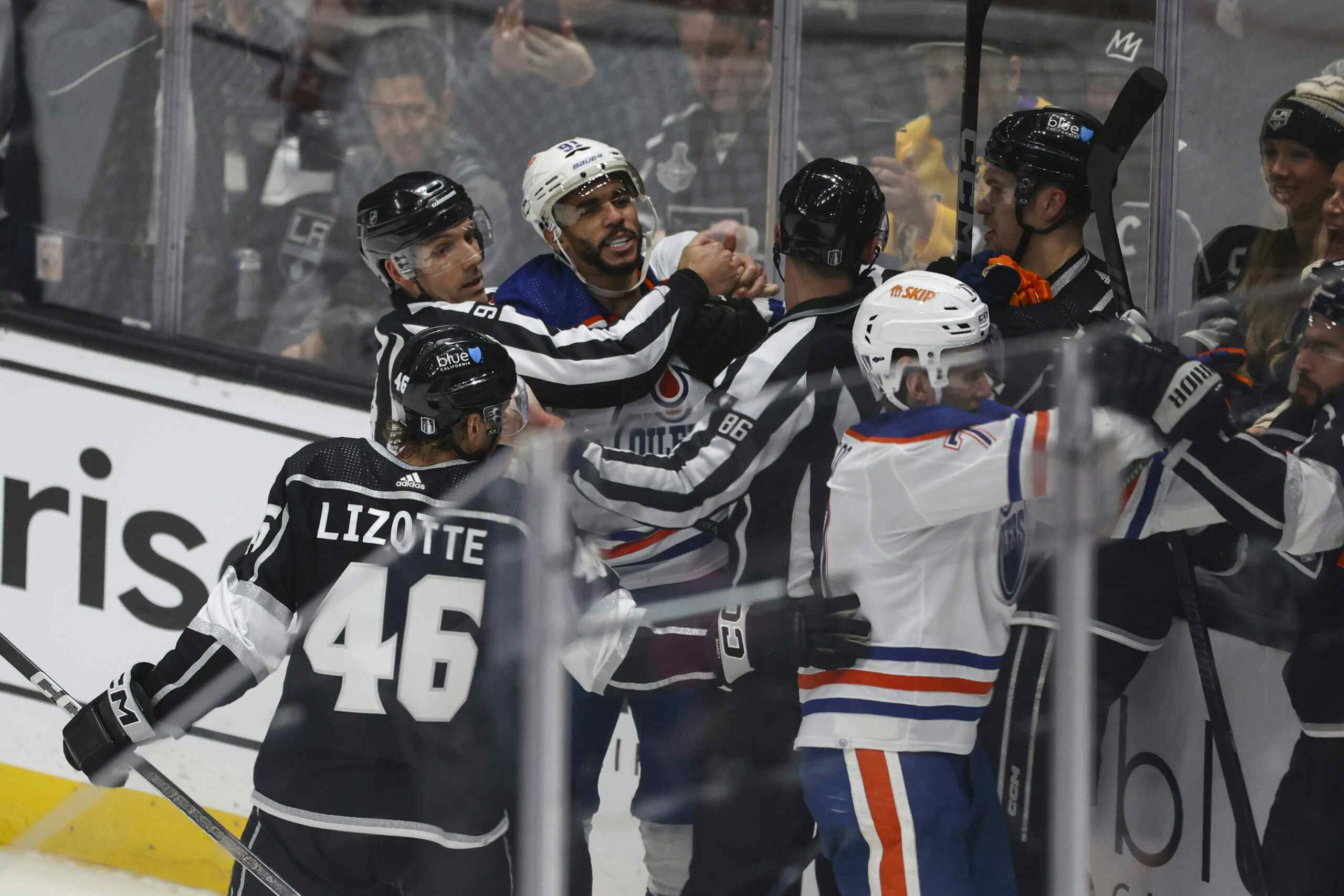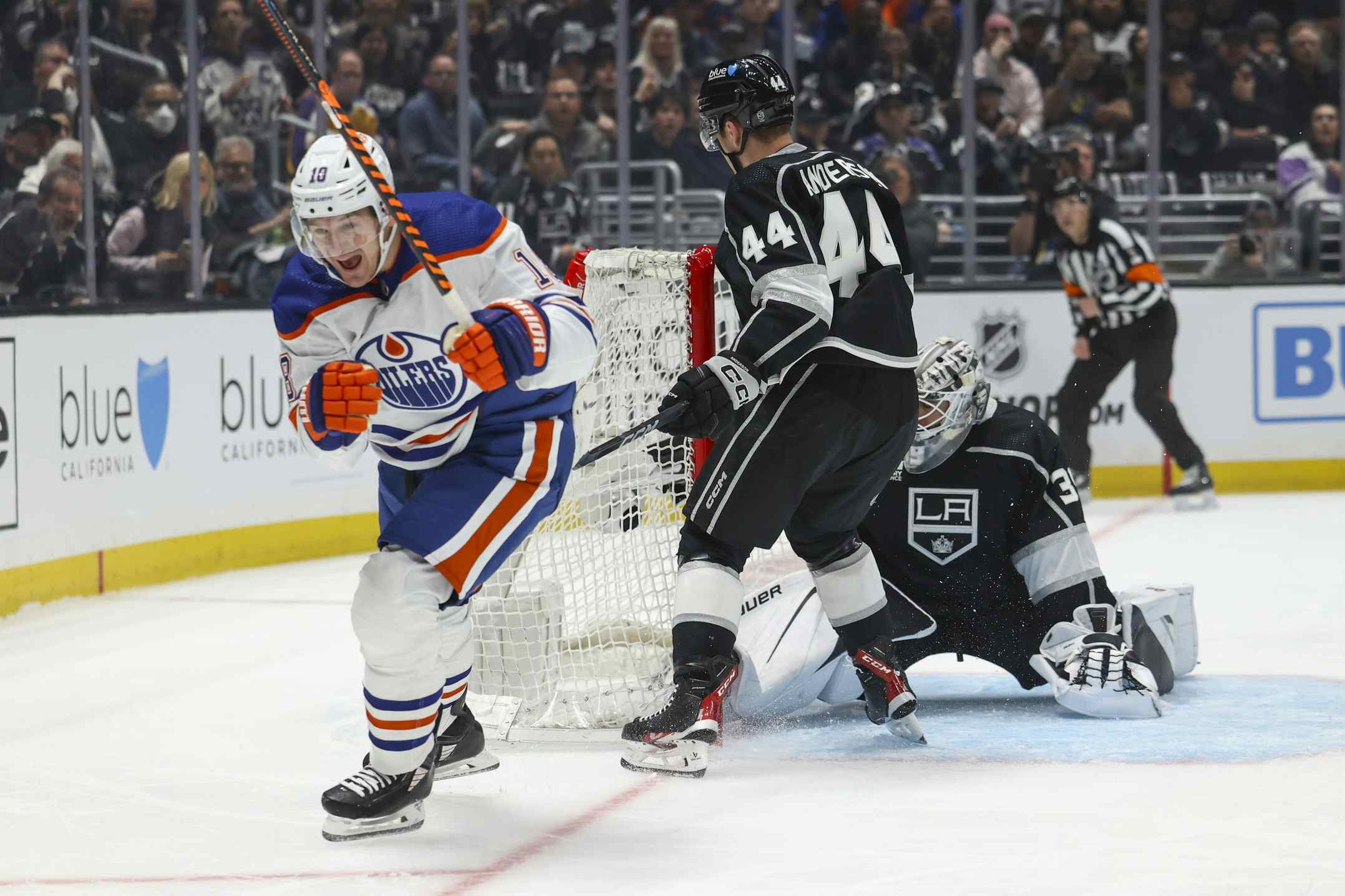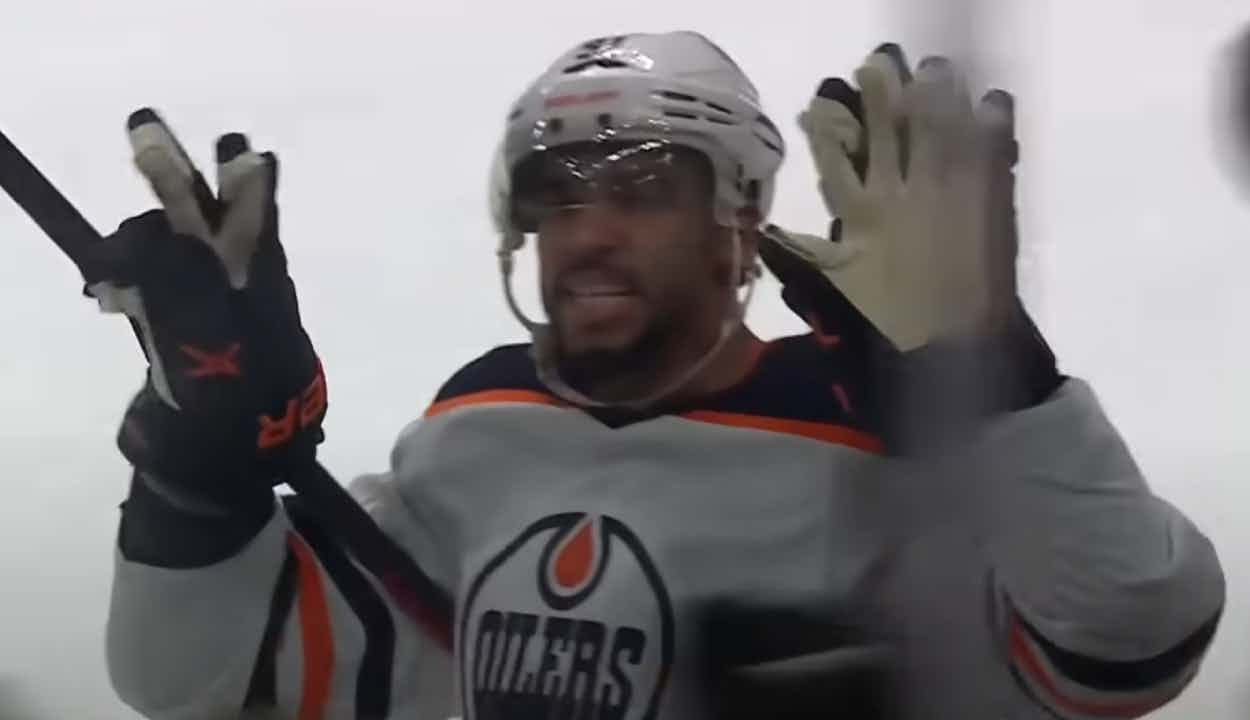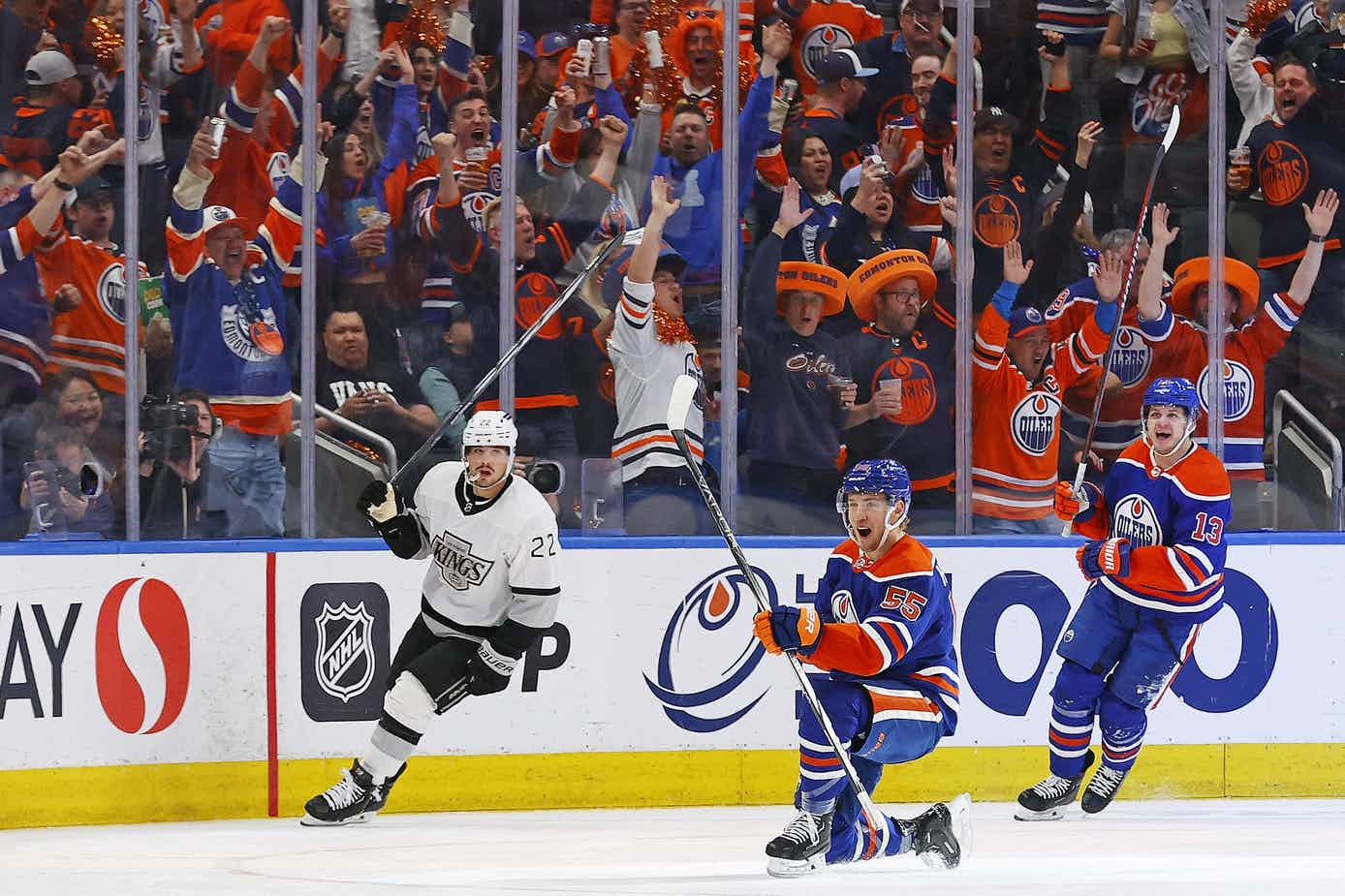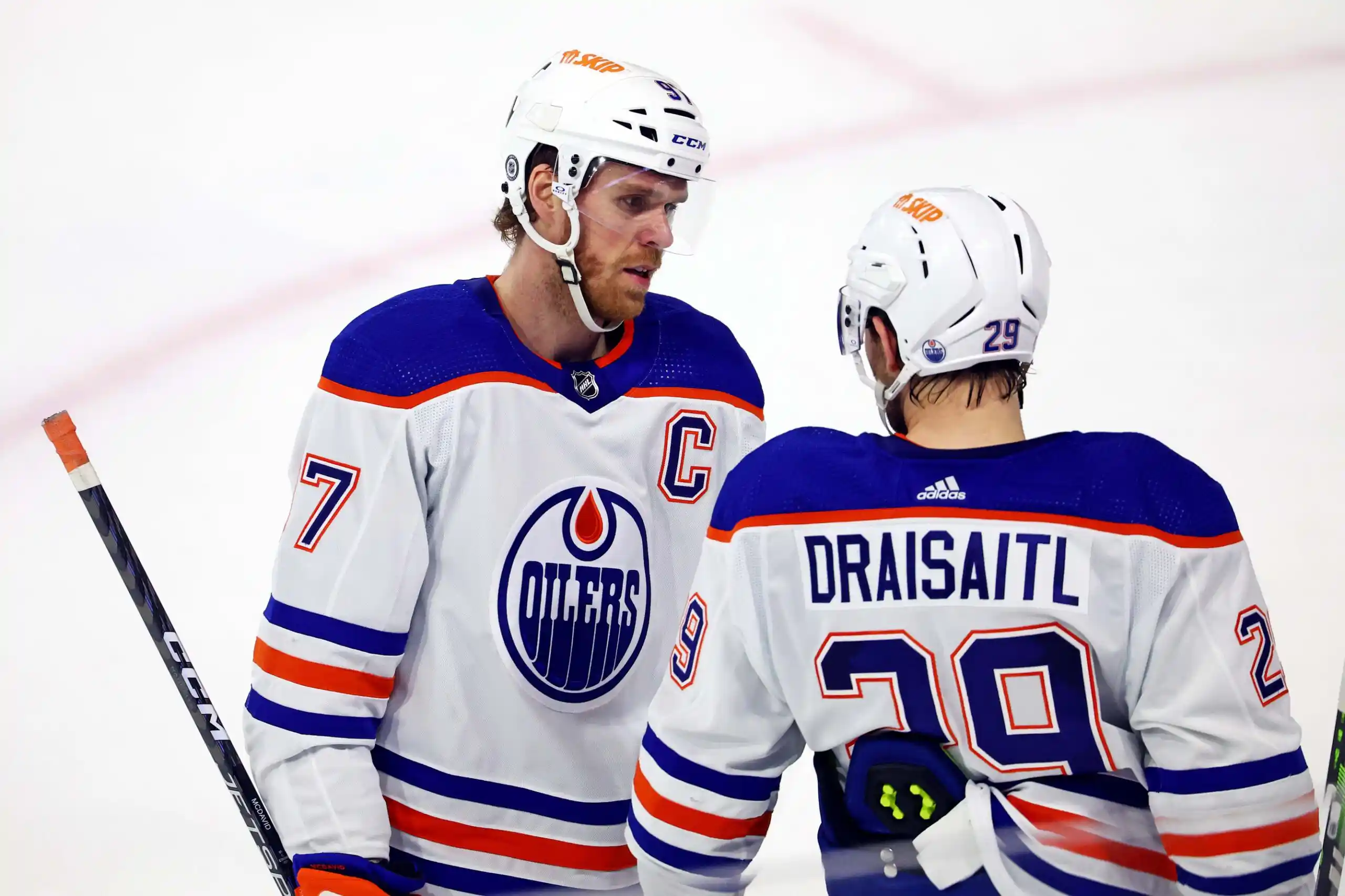Two-way forwards, Defensive forwards, and the Selke debate
By Cam Charron
12 years ago
A principle problem of mainstream hockey talk revolves around finding the right value for a defensive player. Evaluating a player’s defensive attributes, unfortunately, falls into some pitfalls on the surface. It is absolutely impossible to watch every game and judge each player well defensively, which causes some problems when it comes to handing out individual awards at the end of the season. The Selke Trophy is awarded year after year to the forward who “demonstrates the most skill in the defensive component of the game”. It actually isn’t.
The Selke is awarded by reputation rather than individual merit, thus the nominees for the Selke Trophy appear to be quite better than the nominees for the Hart Trophy. Ask yourself a question if you’d rather Ryan Kesler, Pavel Datsyuk or Jonathan Toews on your team or Daniel Sedin, Corey Perry and Martin St. Louis. Even if age isn’t an issue, you’re looking at three top centremen in the game versus three wingers who had career years on top lines.
Lately, the award has had so many repeat winners due to the fact that defensive players play well in the eyes of many in the voting hockey media due to confirmation bias. If Pavel Datsyuk (or Jere Lehtinen) play well enough against a team a PWHA member is covering, that puts them at an advantage. Every good defensive play will be applauded, and every poor play will be rationalized.

Pavel Datsyuk was 3rd on his team among forwards as far as defensive zone starts per game played and 2nd among centremen (Henrik Zetterberg). Ryan Kesler saw more offensive minutes this year thanks to Vancouver’s addition of Manny Malhotra. Jonathan Toews saw sheltered minutes in Chicago. These are not negative traits, but shouldn’t the defensive forward award be awarded to a player who is actually called upon to carry the majority of defensive minutes for his team? Barring that, a player who plays well enough in a defensive role, or, in an offensive role, prevents a much lower number of shots compared to comparable players?
This is what has happened in the NHL. The Selke Trophy was awarded to Ryan Kesler this season, even though he deserved it last season. This season he earned it because he had a reputation as a strong defensive forward, and managed to score 41 goals. As a two-way player, he is the best on the Canucks, but Manny Malhotra was on the ice for six fewer unblocked shot attempts (Fenwick) per 60 minutes of play at even strength.
Some of the best defensive forwards in the league (being, success at preventing shots), fit the mould of players such as Patrick Elias, Malhotra, Steve Ott, Adam Hall or Jarred Smithson. None of these players, save Malhotra, cracked the top 20 in vote total, but the list, one through four, featured some of the better two-way forwards in the league.
A two-way forward is a player that I’d judge to have done equally well at both ends. The traditional definition has unfortunately leaned in the direction of a “two-way forward” being more of a “no-way forward” in essence, a depth player who doesn’t score much. That definition is changing, as players such as Ryane Clowe, Ryan Kesler, Pavel Datsyuk, Patrice Bergeron or David Backes are getting their due. Each player faces relatively tough situations but is successful at either end in a high unblocked shot-attempt differential. These statistics are recorded by the NHL as part of their RTSS project and are logged by websites such as Behind The Net, Hockey Analysis and Time On Ice.
The defensive aspect of the game is certainly just as valuable as the offensive side, as preventing a goal against is worth just as much in the scheme of the scoreboard as a goal for. RTSS, and accounting for variables when we sift through the data allows us to see what happens on the ice without being blinded by our previous impressions.
Understanding that many of you come to this website (okay, all of you) for information about your team, the top two-way player and defensive forward for each club, according to adjusted unblocked shot attempt totals, are as follows:
Defensive Forwards:
Calgary – Tim Jackman
Edmonton – Linus Omark
Toronto – Colby Armstrong
Vancouver – Manny Malhotra
Winnipeg – Chris Thorburn
Two-way Forwards:
Calgary – Michael Backlund
Edmonton – Linus Omark
Toronto – Mikhail Grabovski
Vancouver – Ryan Kesler
Winnipeg – Andrew Ladd
Recent articles from Cam Charron

